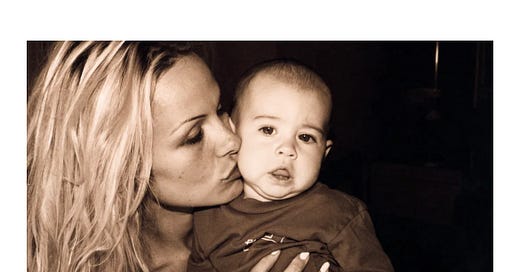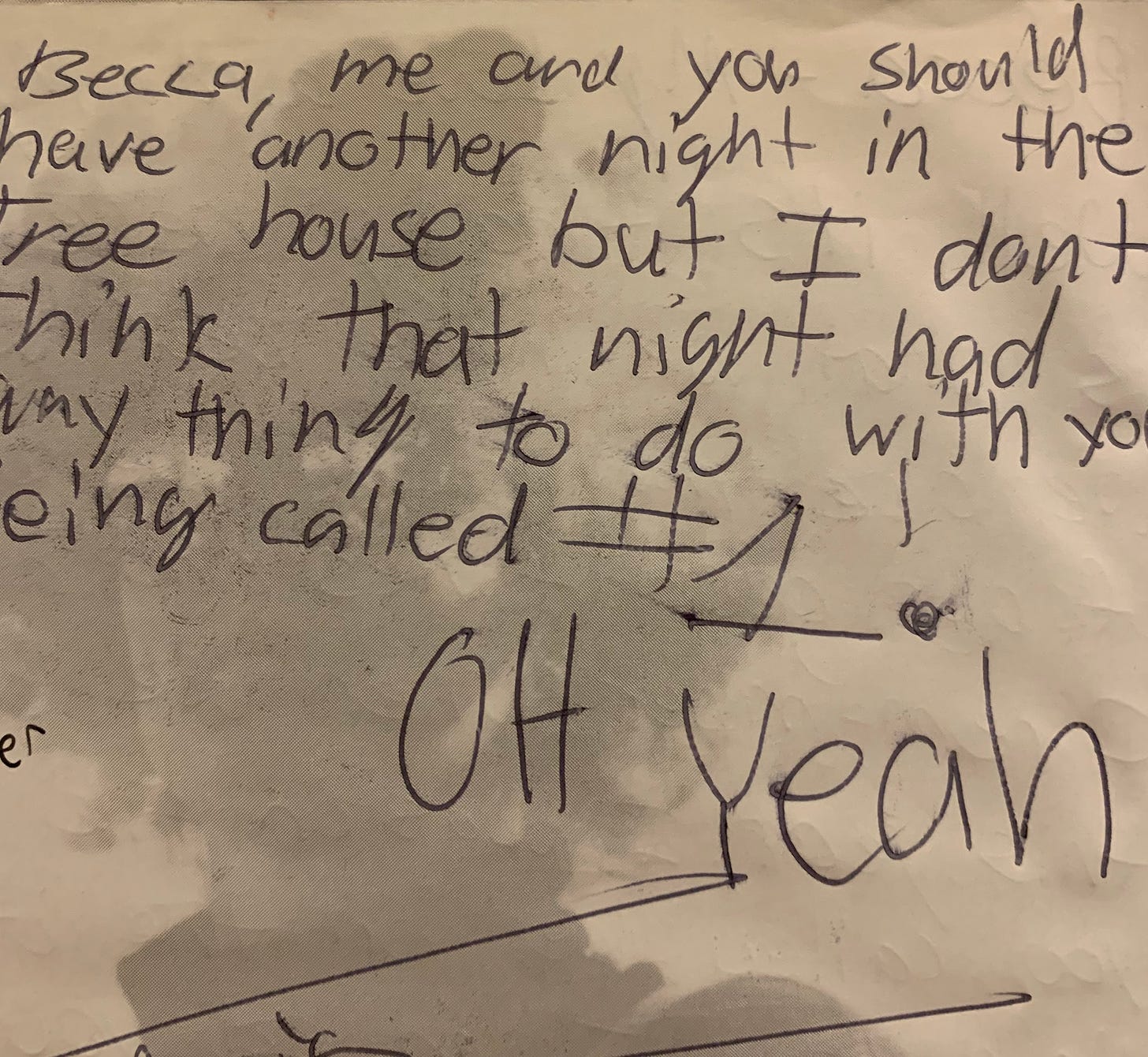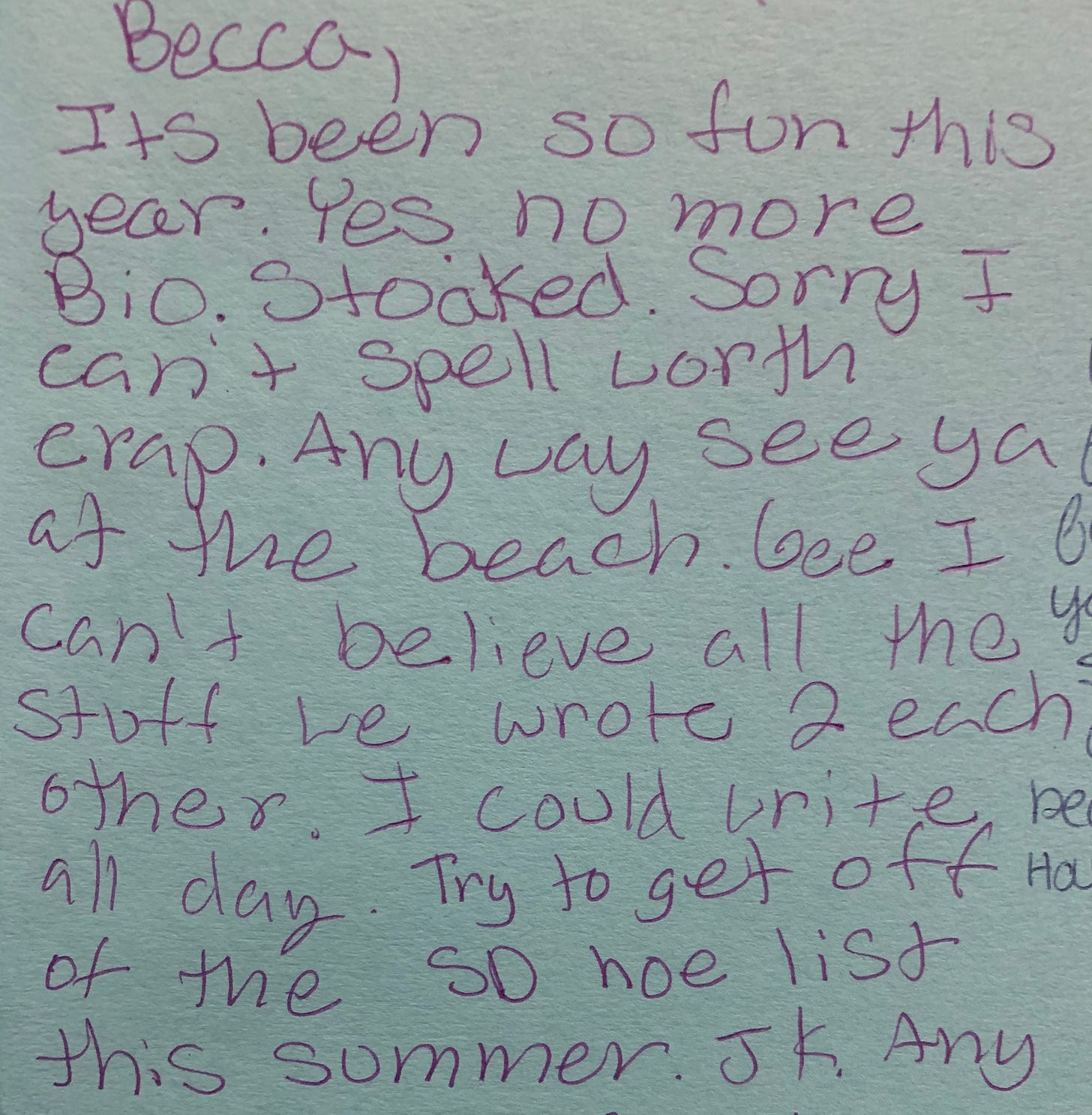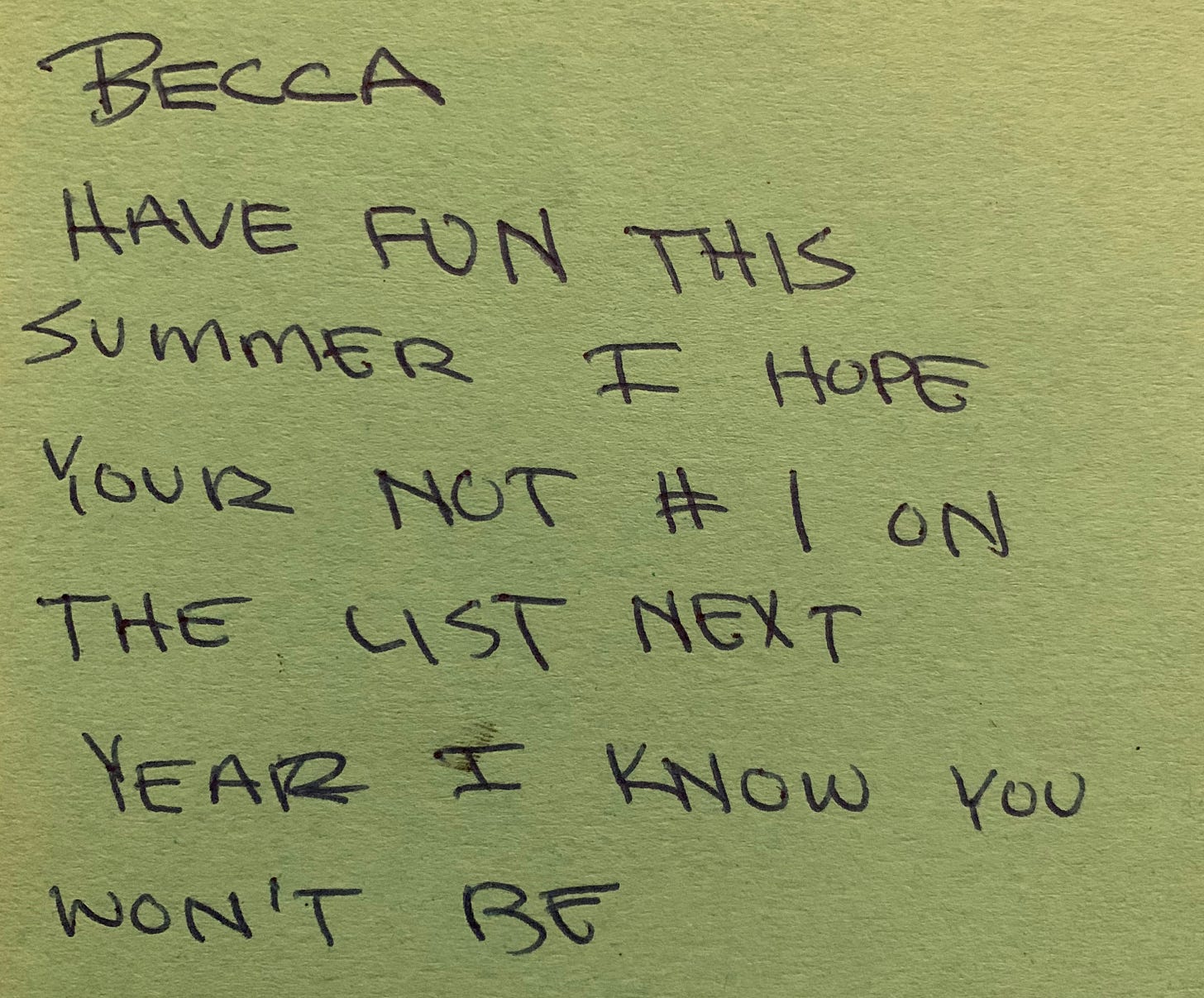The dream of the 90s is alive in our internalized misogyny
on Pamela Anderson and #metoo. (and me, too.)
Last week I wrote about Pamela Anderson and her new documentary Pamela: A Love Story over for Romper and my piece was published yesterday.
My original essay was far longer than it was supposed to be (that’s the problem with a think piece — there is no end to… pieces of thought) so I wanted to include some omitted ideas, here, mainly the part about #MeToo.
Lately I have been thinking quite a bit about the backlash of #MeToo and what happens when the masses are activated with little time to metabolize past trauma. What I’ve mainly picked up on over the years is a lack of curiously when it comes to exploring the nuances of power dynamics and self-preservation. That yes it is possible to be both a victim of abuse and also an enabler of a culture that abuses, shames and silences ESPECIALLY as white women. And that most of us can check both boxes.
I could say I didn’t know any better at the time — perhaps none of us did. It’s an excuse but not a good one. It takes maturity and perspective to come to her defense, and in that era, we didn’t have much of either, which made us all quick to blame whatever slut felt threatening instead of condemning a society that planted the word slut in our consciousness.
Misogyny may have been force-fed to us, but we still ate it up. Realizing later it was making us sick didn’t change that.
When women uphold a patriarchal structure and refuse to take any responsibility for perpetuating it, we have a problem. This can be as harmless as defaulting to our husband’s names when we marry and/or have children — a thing that should absolutely be a RESPECTED choice but must also be recognized for what it’s upholding. I say this as someone who kept her last name but reluctantly agreed to give her children their father’s last name because, at the time, I felt I should pick my battles and that battle defaulted to kids-get-dad’s-name. Why? Because I was programmed to think that was fair even when common sense was suggesting otherwise. Because that’s what everyone else was doing and groupthink is one hell of an enabler. (It’s so much harder to question our conditioning than it is to go along with it.)
My point being, one cannot seamlessly switch teams overnight when one has spent her formative years justifying, excusing and catering to patriarchal norms. Groupthink is a hell of an enabler. And it takes timmmmmmeee to unlearn.
In the documentary, we learn that posing for Playboy empowered Pamela after years of sexual abuse that made her fearful and ashamed of her body. Which doesn’t mean she wasn’t also placating the male gaze and a world of horny dudes. Both are true and should not come as a surprise to any woman — ‘90s-reared or not.
Addressing our willingness to accept shame so long as EVERYONE else is being shamed, too, matters. So does interrogating our own survival responses as women, most notably: freeze and fawn, which I think are far more typical responses than fight or flight when women feel we are in danger — not only domestically but professionally and socially as well (As most of us can attest, fighting back and/or leaving can put us in even more danger.) Fucking (or sexually placating the male gaze) is another survival response.
This is about so much more than culprits and victims. It is about a society whose structure depends on binary approaches to nuanced power dynamics.
The Weinsteins of the world do not happen without a culture that enables them. A culture that includes us — women — who have ALWAYS been co-conspirators in patriarchy. (It is so much easier not to address this which is why it’s so pressing that we do.)
ED: Boys were not writing up WHORE LISTS in high school. Girls were.
This piece by Constance Grady for Vox is worth a read. This part, especially:
The thing is, it doesn’t matter how many Weinsteins we take down. Nothing will shift culturally unless we are able to reckon with our collective shame when it comes to the decades we ALL spent tearing women down (including ourselves) and indeed Anderson was threatening to us.
She was so threatening that she had to age out of being threatening– to both men AND women -- to make a comeback.
I look back on some of my earlier posts, ideas, and perspectives, and while it’s clear how far I’ve come, I am reminded every day of how far I still have to go.
I recently wrote about this, here, so naturally it’s been on my mind — this sort of OH FUCK I WAS COMPLICIT. I’VE BEEN COMPLICIT. HOW AM I COMPLICIT NOW? Where does my judgement come from and what feeds it exactly?
And the more I listened to Pamela Anderson tell her story, the more I thought about every narrative that quieted, not only Pamela, but any woman who dared explore her truth without shame.
How does one separate the male gaze from her own, when the lenses she’s been prescribed her whole life have come from The Male Gaze Emporium. (Again, same as with in Fleishman, which made me realize that even the stories told by women — when strained through a man’s experience — are not women’s stories.) Which is why when a woman whose story has been filtered through years of Jay Leno monologues finally tells her story, it feels revelatory. And deeply personal.
Anderson dismantled society’s perception of her by carrying multiple truths at once: That it is possible to be empowered by one’s sexuality and also exploited, raped, and abused because of it. That it is possible to love an abusive partner, leave him unapologetically and still grieve him decades later. And in the end, it is possible to thrive as a mother of well-adjusted sons in a society that has slut-shamed her across every platform, rising from the ashes of the stake she was burned at to declare: Oh me? Hi, yeah, I’m still here.
And while its far easier to point fingers at the proverbial Jay Lenos and Weinsteins et al, nothing will change unless we take collective responsibility for all the times we laughed at the jokes, knowing it was far less painful to go along with them than it was to think about what they were actually saying — to her but also to ALL women and girls, including the daughters we are currently raising.
For years I thought it was easier to laugh at the joke than it was to say it wasn’t funny. To excuse bad behavior instead of calling it out straight to its face. And because of that I ended up in a lot of rooms with the kind of men who made jokes. The kind of women who did, too.
Because laughing at the joke means you’re safe from becoming the butt of one.
Because laughing at the joke means you’re safe.
Because what often feels like self-preservation through male-validation becomes a monster with no recourse. I’m talking about the if you can’t beat it, join it approach to misogyny which is what raised every teenage girl in the 90s. (I can’t speak for other decades because I did not grow up in them. But the 90s were a time of deeply rooted misogyny and I am realizing more and more its effects on me and my generation.)
Perhaps this is why instead of pushing back, we assumed responsibility. For being groped. For liking boys and sometimes, yes, their attention. For enjoying sex acts. There was no alternative. Fight back against what? Complain to who? Who is going to take the side of the Playboy centerfold? Of the big-breasted popular girl?
There was nowhere to go with that kind of pain in those days. You just had to suck it up. Pretend not to care. Learn how to be mean and fight back. Age out of the older girls hating you so that you could take their place. Become empowered by your so-called sluttiness. Write about it. Turn it into a career. Become brave.
It is of my personal belief that the only way for any of us to move forward is to acknowledge our compliance to the same white patriarchal systems we have depended on for informing our techniques to socially survive. And to get down and dirty with the roots of our internalized misogyny.
To say #MeToo to all of that as well.









Love Pamela documentary-the topper is Chicago on Broadway-my all-time fav!!! The giant cultural shifts you are referring to, and the recognition of the internal dialogue shifts that we need to have with ourselves- these ideas are revolutionary! I’m also 90’s era gal... thank you for giving us a voice! 🌟
BOOM. I can’t wait to read the romper piece. I am so thankful for Anderson’s candor. The time is now❤️